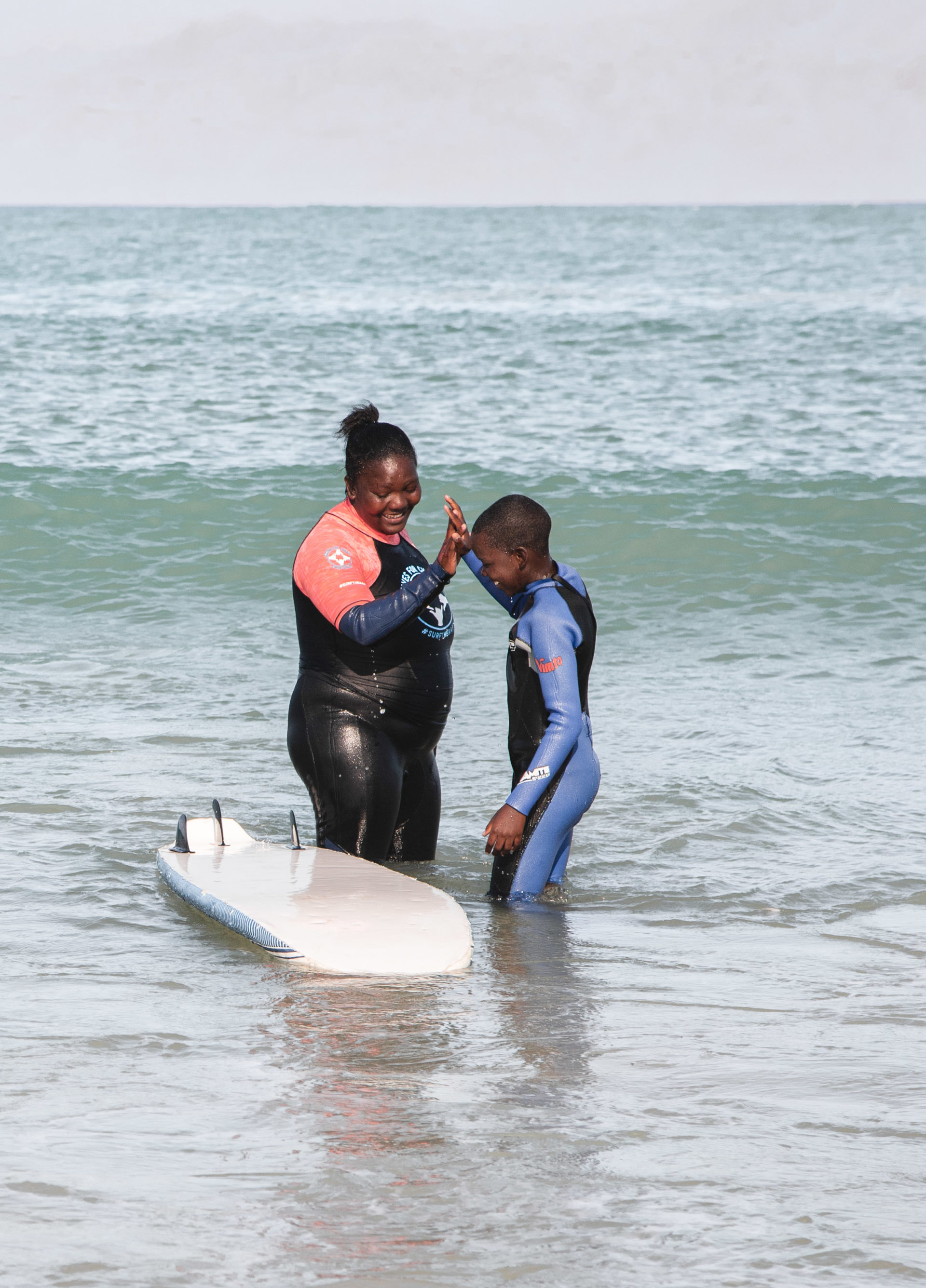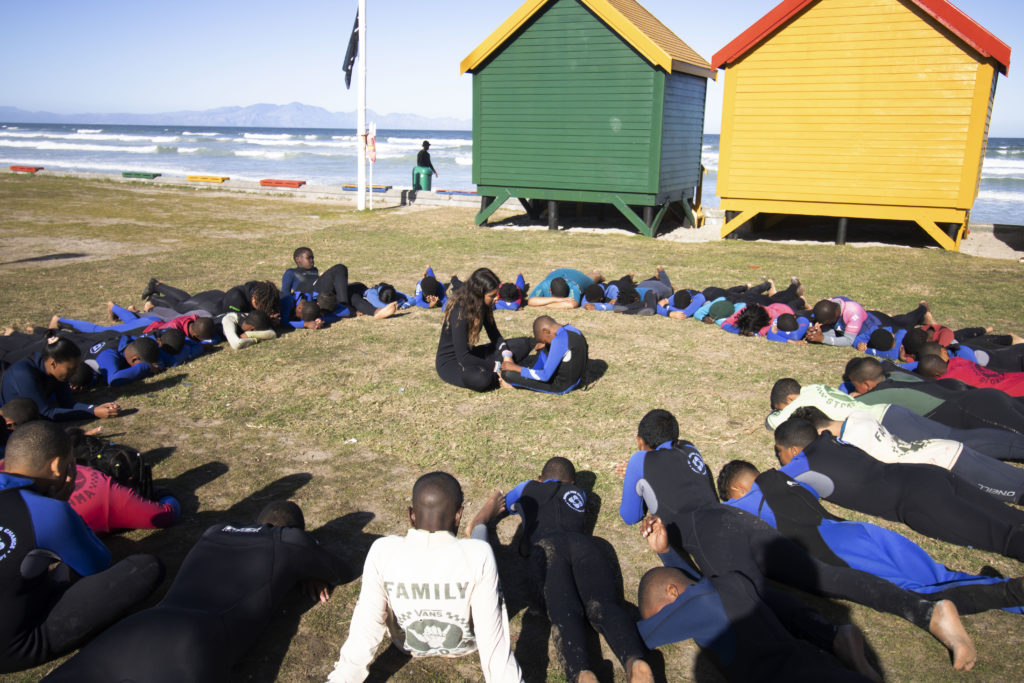Stigma around mental health in black communities

Stigma surrounding mental health illnesses forms one of the biggest cultural and social challenges preventing individuals from accessing the mental health care that they need. The discrimination and ridicule of those battling with a mental illness—be it anxiety, depression or psychosis— exists globally and mostly derives from ignorance or prejudice((Egbe, C., Brooke-Sumner, C., Kathree, T., Selohilwe, O., Thornicroft, G., & Petersen, I. (2014). Psychiatric stigma and discrimination in South Africa: perspectives from key stakeholders. BMC Psychiatry, 14(1). doi: 10.1186/1471-244x-14-191)). Despite being a global issue, stigmatization seems to be most prevalent in low-and-middle-income countries (LMIC) where large mental healthcare treatment gaps exist, as well as linguistic and cultural barriers that make it difficult for communities to recognize mental health disorders as a legitimate form of illness.
In South African black communities, mental health disorders are strongly associated with the culture-bound syndrome of being bewitched, demon-possessed (amafufunyana), or journeying to become a traditional healer (ukuthwasa). These descriptions are used interchangeably to name psychosis and schizophrenia((Masondo, P., & Masondo, P. (2015). Hallucinations and delusions of schizophrenia among Zulu men : an interpretive phenomenological analysis.; Niehaus, D., Oosthuizen, P., Lochner, C., Emsley, R., Jordaan, E., & Mbanga, N. et al. (2004). A Culture-Bound Syndrome ‘Amafufunyana’ and a Culture-Specific Event ‘Ukuthwasa’: Differentiated by a Family History of Schizophrenia and other Psychiatric Disorders. Psychopathology, 37(2), 59-63. doi: 10.1159/000077579)). Furthermore, linguistic barriers in the lack of defining words for common mental health disorders such as anxiety, bipolar disorder or depression in indiginious languages like Xhosa and Zulu((This is not to say that there is no translated term for “anxiety” (ixhala) and “depression” (ukudakumba) in Xhosa or Zulu, but more so to point out that these terms are not used to adequately discuss the two as mental illnesses. “Ixhala” is commonly used to describe feeling nervous or anxious while ukudakumba describes being overly sad or worried. Also, the use of these terms does not hint the need to seek medical or psychological help.)) further feed ambiguity in religious and traditional forms of diagnoses that are often loaded with shame. When church prayers and traditional ceremonies cannot “deliver” the “possessed” from spiritual impurities, that person is then labelled as “mad”. This mark of stigma begins to undo their position in society, it erases their agency and devalues their esteem as a functioning adult in the community. Henceforth, they are treated similarly to a child and what they have to say is no longer valued as much, because who listens to a “madman” or “madwoman”?
In other scenarios, when an individual displays symptomatic behaviours of, say depression, these can be misattributed to other causes. Symptoms such as feeling worthless or experiencing fatigue((Legg, T. (2020). Everything You Want to Know About Depression [Blog]. Retrieved from https://www.healthline.com/health/depression)) can negatively affect a child’s academic performance or an adult’s ability to show up for work (potentially resulting in job loss). Without the language to identify and discuss mental health problems, adults and children alike can be labelled as lazy or scolded for “not trying hard enough”. By the same token, the absence of language to address mental health challenges in black and coloured communities risks missing the opportunity to identify individuals in suffering; and out of fear of being stigmatized, they may be reluctant to seek out help, opting to rather suffer in silence((Niehausa et al., 2018)).
Children living in townships observe the culture of silence towards mental health problems. The flip side of the coin is that they then do not have the language to express what they could be battling with. What is unfortunate about this is that these children—oftentimes living in chronic poverty and volatile environments—are most at risk of suffering from toxic stress. Toxic stress occurs when a child is exposed to adversity and trauma frequently or for prolonged periods at a time. Extensive exposure to adversity leads to an over-activation of the sympathetic nervous system (the brain’s fight or flight mechanism) which negatively impacts a child’s ability to deal with stress, regulate their emotions and to think before they respond to a perceived threat. Inability to self-regulate is hinted through anti-social behavior such as constantly fighting, an inability control impulsive behaviour or struggling to concentrate((McEwen, C., & McEwen, B. (2017). Social Structure, Adversity, Toxic Stress, and Intergenerational Poverty: An Early Childhood Model. Annual Review Of Sociology, 43(1), 445-472. doi: 10.1146/annurev-soc-060116-053252)). With silent yet significant consequence—toxic stress has been recognized as a silent pandemic in South Africa((Yarrow, P & Cohen, R. (2020). “Waves for Change”. 2-12.)).
Ways in which Waves for Change combats the stigma attached to mental health in the communities we partner with is by equipping teachers to identify children showing symptoms of toxic stress, and to refer them to our Surf Therapy programme. Surfing as a fun, cool sport gives the participants a sense of belonging in their new surfer tribe: a space that allows participants to build a positive self-identity free from the stigma associated with seeking mental health services.
The W4C Surf Therapy programme is a community-based intervention that fuses the rush of surfing with an evidence-based curriculum that is delivered by mentors from the same communities as the children that are referred. This supports children to relate to their Mentors and feel comfortable to practice behaviours that help them cope with the stress and trauma. Through confidence boosting activities such as energizers, children are reminded that they belong, their voices heard, their presence felt and their life, valued. The Waves for Change BananasCulture which stands for “protect, respect and communicate” is one of the slogans which teaches children about prosocial skills such as respecting others but also reminds them that they are protected and should communicate their feelings.
To stay tuned with more stories and updates in addition to those provided on our website, check out our social media pages!
#BannanaCultures


